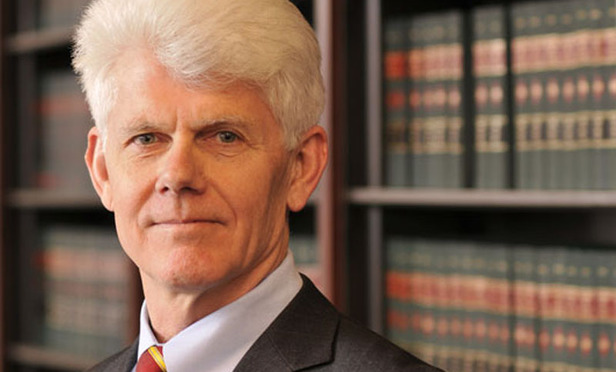Thomas F Gleason

November 15, 2015 | New York Law Journal
Foreign Language Affidavits and ExhibitsIn his New York Practice column, Thomas F. Gleason writes: CPLR 2101(b) provides pretty clear instructions on how a foreign language speaker can prepare a document admissible as proof in New York, so it is surprising how many trial and appellate cases involve non-compliant affidavits that ultimately are rejected by the court.
By Thomas F. Gleason
8 minute read

July 20, 2015 | New York Law Journal
The Future of Hard Copy Court Records and E-FilingIn his New York Practice column, Thomas F. Gleason writes: In this second half of the second decade of this millennium, consider the implications of two CPLR proposals awaiting action on the governor's desk. The first would broadly expand electronic filing of court papers, and the second would allow hard copy service of interlocutory papers by mail from other states within the United States.
By Thomas F. Gleason
8 minute read

July 17, 2015 | New York Law Journal
The Future of Hard Copy Court Records and E-FilingIn his New York Practice column, Thomas F. Gleason writes: In this second half of the second decade of this millennium, consider the implications of two CPLR proposals awaiting action on the governor's desk. The first would broadly expand electronic filing of court papers, and the second would allow hard copy service of interlocutory papers by mail from other states within the United States.
By Thomas F. Gleason
8 minute read

March 16, 2015 | New York Law Journal
Trial Court Discretion and Expert TestimonyIn his New York Practice column, Thomas F. Gleason writes: Because of the importance of expert testimony, substantial discretion is needed to adjudicate fair procedures for pretrial expert disclosure. Discretion is critical in managing the timing of expert disclosure, but no simple rule of timing will fit all cases, because there are so many variable considerations.
By Thomas F. Gleason
9 minute read

March 13, 2015 | New York Law Journal
Trial Court Discretion and Expert TestimonyIn his New York Practice column, Thomas F. Gleason writes: Because of the importance of expert testimony, substantial discretion is needed to adjudicate fair procedures for pretrial expert disclosure. Discretion is critical in managing the timing of expert disclosure, but no simple rule of timing will fit all cases, because there are so many variable considerations.
By Thomas F. Gleason
9 minute read

November 17, 2014 | New York Law Journal
New Rule Requires Redaction or Omission of InformationIn his New York Practice column, Thomas F. Gleason writes: Hardly a day goes by without a new hacking or computer intrusion news story. Identity thieves exercise extraordinary ingenuity to obtain personal information, and court files, with detailed information on the parties and others, remain a logical target. A new section of the Uniform Civil Rules of the Supreme and County Courts will address this risk.
By Thomas F. Gleason
7 minute read

September 26, 2014 | New York Law Journal
Affirmations and Declarations in New York PracticeIn his New York Practice column, Thomas F. Gleason discusses a recent amendment to CPLR 2106, which previously allowed unsworn affirmations instead of affidavits only by certain professionals, but now allows New York courts to consider unsworn affirmations by any person physically outside the United States, where there may be no clear analog of the notary, or where there are religious, social or bureaucratic impediments to obtaining a sworn statement for extraterritorial use.
By Thomas F. Gleason
9 minute read

March 17, 2014 | New York Law Journal
Seeking E-Disclosure From Third PartiesIn his New York Practice column, Thomas F. Gleason of Gleason, Dunn, Walsh & O'Shea writes: It often is far easier to seek copies of emails or documents from non-parties in the email traffic chain. But electronic discovery requests can be a burden on third parties, who understandably may object, reasoning that the parties should be burdened first. How can we balance this reasonable concern with the need to obtain evidence which otherwise may not come to light?
By Thomas F. Gleason
9 minute read

November 18, 2013 | New York Law Journal
Glitches and Mistakes—Should We Correct or Disregard Them?In his New York Practice column, Thomas F. Gleason of Gleason, Dunn, Walsh & O'Shea reviews a decision in which the Second Department recently found "glitches associated with the initiation of the new e-filing system" responsible for a plaintiff's significant commencement by e-filing mistake and permitted correction of the error pursuant to CPLR 2001.
By Thomas F. Gleason
8 minute read

March 18, 2013 | New York Law Journal
The WTC Presumption - Turning the Article 78 TablesIn his New York Practice column, Thomas F. Gleason, a member of Gleason, Dunn, Walsh & O'Shea, writes: A survey of results in CPLR 7803 challenges might suggest the statutory term "substantial evidence" could be replaced by "scintilla of evidence," without change in the outcome of cases. The critical importance of the standard of review in Article 78 proceedings is illustrated by a limited class of cases in which the petitioner, not the respondent, gets the legislative helping hand.
By Thomas F. Gleason
8 minute read
Trending Stories
- 1Friday Newspaper
- 2Judge Denies Sean Combs Third Bail Bid, Citing Community Safety
- 3Republican FTC Commissioner: 'The Time for Rulemaking by the Biden-Harris FTC Is Over'
- 4NY Appellate Panel Cites Student's Disciplinary History While Sending Negligence Claim Against School District to Trial
- 5A Meta DIG and Its Nvidia Implications
More from ALM
- Legal Speak at General Counsel Conference East 2024: Match Group's Katie Dugan & Herrick's Carol Goodman 1 minute read
- Legal Speak at General Counsel Conference East 2024: Eric Wall, Executive VP, Syllo 1 minute read
- Legal Speak at General Counsel Conference East 2024: Virginia Griffith, Director of Business Development at OutsideGC 1 minute read



